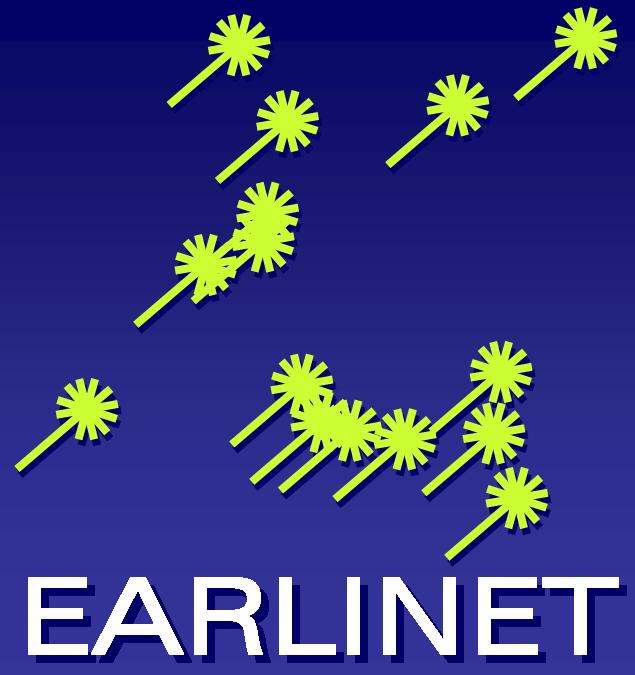Mercurial > public > atmospheric_lidar / file revision
docs/conf.py@03b470b0a05f
docs/conf.py
Tue, 25 Sep 2018 12:43:14 +0300
- author
- Ioannis <ioannis@inoe.ro>
- date
- Tue, 25 Sep 2018 12:43:14 +0300
- changeset 157
- 03b470b0a05f
- parent 132
- dc48952c383d
- child 168
- 9fed2446a59f
- permissions
- -rw-r--r--
Improvment on telecover.
# -*- coding: utf-8 -*- # # Atmospheric lidar documentation build configuration file, created by # sphinx-quickstart on Thu Dec 7 15:45:39 2017. # # This file is execfile()d with the current directory set to its # containing dir. # # Note that not all possible configuration values are present in this # autogenerated file. # # All configuration values have a default; values that are commented out # serve to show the default. # If extensions (or modules to document with autodoc) are in another directory, # add these directories to sys.path here. If the directory is relative to the # documentation root, use os.path.abspath to make it absolute, like shown here. # import os import sys sys.path.insert(0, os.path.abspath('../')) # Mock modules for read the docs on_rtd = os.environ.get('READTHEDOCS') == 'True' if on_rtd: from mock import Mock as MagicMock class Mock(MagicMock): @classmethod def __getattr__(cls, name): return MagicMock() MOCK_MODULES = ['netCDF4', 'numpy', 'scipy', 'matplotlib', 'matplotlib.ticker'] sys.modules.update((mod_name, Mock()) for mod_name in MOCK_MODULES) # NumpyDoc options, to work with autosummary numpydoc_show_class_members = False # class_members_toctree = False # -- General `onfiguration ------------------------------------------------ # If your documentation needs a minimal Sphinx version, state it here. # # needs_sphinx = '1.0' # Add any Sphinx extension module names here, as strings. They can be # extensions coming with Sphinx (named 'sphinx.ext.*') or your custom # ones. extensions = ['sphinx.ext.autodoc', 'sphinx.ext.autosummary', 'sphinx.ext.intersphinx', 'sphinx.ext.todo', 'sphinx.ext.mathjax', 'sphinx.ext.viewcode', 'numpydoc', ] # Add any paths that contain templates here, relative to this directory. templates_path = ['_templates'] # The suffix(es) of source filenames. # You can specify multiple suffix as a list of string: # # source_suffix = ['.rst', '.md'] source_suffix = '.rst' # The master toctree document. master_doc = 'index' # General information about the project. project = u'Atmospheric lidar' copyright = u'2017, Ioannis Binietoglou, Victor Nicolae' author = u'Ioannis Binietoglou, Victor Nicolae' # The version info for the project you're documenting, acts as replacement for # |version| and |release|, also used in various other places throughout the # built documents. # # The short X.Y version. version = u'0.2.11' # The full version, including alpha/beta/rc tags. release = u'0.2.11' # The language for content autogenerated by Sphinx. Refer to documentation # for a list of supported languages. # # This is also used if you do content translation via gettext catalogs. # Usually you set "language" from the command line for these cases. language = None # List of patterns, relative to source directory, that match files and # directories to ignore when looking for source files. # This patterns also effect to html_static_path and html_extra_path exclude_patterns = ['_build', 'Thumbs.db', '.DS_Store'] # The name of the Pygments (syntax highlighting) style to use. pygments_style = 'sphinx' # If true, `todo` and `todoList` produce output, else they produce nothing. todo_include_todos = True # -- Options for HTML output ---------------------------------------------- # The theme to use for HTML and HTML Help pages. See the documentation for # a list of builtin themes. # html_theme = 'alabaster' # Theme options are theme-specific and customize the look and feel of a theme # further. For a list of options available for each theme, see the # documentation. # # html_theme_options = {} # Add any paths that contain custom static files (such as style sheets) here, # relative to this directory. They are copied after the builtin static files, # so a file named "default.css" will overwrite the builtin "default.css". html_static_path = ['_static'] # Custom sidebar templates, must be a dictionary that maps document names # to template names. # # This is required for the alabaster theme # refs: http://alabaster.readthedocs.io/en/latest/installation.html#sidebars html_sidebars = { '**': [ 'relations.html', # needs 'show_related': True theme option to display 'searchbox.html', ] } # -- Options for HTMLHelp output ------------------------------------------ # Output file base name for HTML help builder. htmlhelp_basename = 'Atmosphericlidardoc' # -- Options for LaTeX output --------------------------------------------- latex_elements = { 'classoptions': ',openany,oneside', # The paper size ('letterpaper' or 'a4paper'). # # 'papersize': 'letterpaper', # The font size ('10pt', '11pt' or '12pt'). # # 'pointsize': '10pt', # Additional stuff for the LaTeX preamble. # # 'preamble': '', # Latex figure (float) alignment # # 'figure_align': 'htbp', } # Grouping the document tree into LaTeX files. List of tuples # (source start file, target name, title, # author, documentclass [howto, manual, or own class]). latex_documents = [ (master_doc, 'Atmosphericlidar.tex', u'Atmospheric lidar Documentation', u'Ioannis Binietoglou, Victor Nicolae', 'manual'), ] # -- Options for manual page output --------------------------------------- # One entry per manual page. List of tuples # (source start file, name, description, authors, manual section). man_pages = [ (master_doc, 'atmosphericlidar', u'Atmospheric lidar Documentation', [author], 1) ] # -- Options for Texinfo output ------------------------------------------- # Grouping the document tree into Texinfo files. List of tuples # (source start file, target name, title, author, # dir menu entry, description, category) texinfo_documents = [ (master_doc, 'Atmosphericlidar', u'Atmospheric lidar Documentation', author, 'Atmosphericlidar', 'One line description of project.', 'Miscellaneous'), ] # -- Options for Epub output ---------------------------------------------- # Bibliographic Dublin Core info. epub_title = project epub_author = author epub_publisher = author epub_copyright = copyright # The unique identifier of the text. This can be a ISBN number # or the project homepage. # # epub_identifier = '' # A unique identification for the text. # # epub_uid = '' # A list of files that should not be packed into the epub file. epub_exclude_files = ['search.html'] # Example configuration for intersphinx: refer to the Python standard library. intersphinx_mapping = {'https://docs.python.org/': None}

